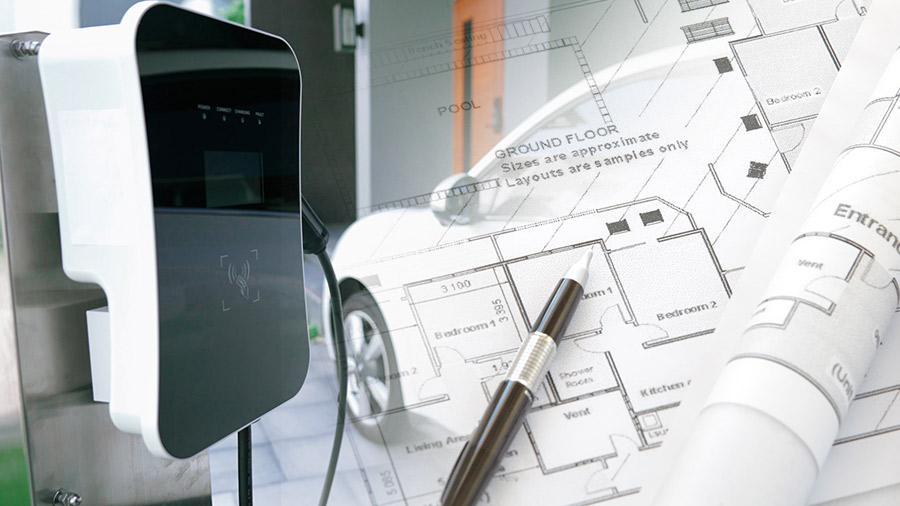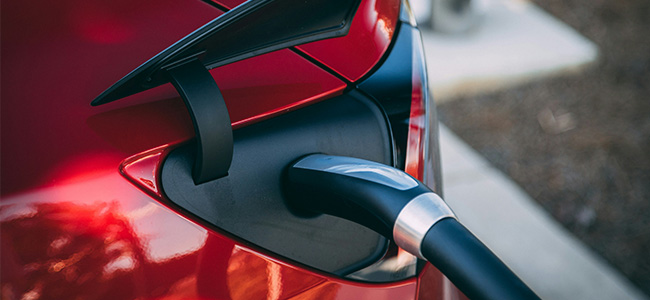In an age where the hum of an electric vehicle (EV) is becoming as common as the morning birdsong, the rush to embrace these modern marvels of mobility is palpable. As sustainable alternatives to gasoline-powered cars, EVs offer not just a ride to the future but a journey toward environmental stewardship. However, this journey isn’t without its pit stops, one of the most crucial being the installation of a home charging station. But here’s the catch: diving into the world of EV home charging without considering the importance of permits and inspections is like navigating a road trip without a map.
Understanding the Basics of EV Home Charging
Imagine plugging in your EV at home just like you do your smartphone. That’s the convenience a home charging station offers. But not all chargers are created equal. From the slow and steady Level 1 chargers to the rapid-fire DC Fast Chargers, each type has its installation playbook. And while you might be tempted to cut corners, remember that installing a home charging station is a job for the pros.
The Importance of Permits for EV Charger Installation
Permits might seem like bureaucratic hoops to jump through, but they’re the guardrails that keep us safe on the road to innovation. They ensure your electrifying new setup adheres to the latest safety standards, protecting you, your home, and your shiny new EV. In a world where DIY can sometimes mean “Damage It Yourself,” permits ensure that your EV charger installation is a “Done Impeccably Well” project.
The Role of Inspections in Ensuring Safety and Compliance
Think of inspections as your home charging setup’s final exam, where passing means earning a badge of safety and compliance. Inspectors are the unsung heroes who ensure your installation doesn’t turn your dream of electric mobility into a nightmare of electrical mishaps. They’re not just ticking boxes; they’re safeguarding your journey toward a greener future.
Long-term Benefits of Proper Installation and Compliance
Proper installation and adherence to regulations do more than just keep you safe; they turbocharge the benefits of going electric. A correctly installed charging station operates at peak efficiency, prolongs the life of your EV, and might even juice up your home’s value. It’s an investment that pays dividends in savings, safety, and sustainability.
Navigating the Permit and Inspection Process
Navigating the maze of permits and inspections can feel daunting, but it’s less about getting lost in the bureaucracy and more about embarking on a journey of empowerment. Here’s how to steer through the process:
- Start your engines by researching local requirements and contacting your city or county’s building department.
- Prepare for the pit stop by ensuring your installation site is accessible and up to code.
- Ask the right questions to your installer about their familiarity with local regulations and standards.
Common Misconceptions and Challenges
Let’s bust some myths: obtaining permits and passing inspections isn’t a drag race against time and money. With the right preparation and support, it’s more like a victory lap. Yes, challenges may arise, but they’re not roadblocks; they’re opportunities to ensure your home charging station is set up for success.
Conclusion & Key Takeaways
As we accelerate into the future of transportation, understanding the importance of permits and inspections for EV home charger installations is more than a regulatory requirement; it’s a cornerstone of safe and sustainable EV ownership. Embrace these steps not as bureaucratic hurdles but as vital checkpoints on your journey to a greener world.
- Home Charging is Essential for EV Owners: Installing a home EV charger provides convenience and efficiency, enabling you to charge your electric vehicle overnight, just like your smartphone.
- Permits Ensure Safety and Compliance: Obtaining the necessary permits before installation is crucial to ensure that your home EV charging station adheres to local, state, and national safety standards and regulations.
- Inspections Validate Your Installation: Professional inspections are key to verifying that your EV charger is installed correctly, safely, and in compliance with all electrical codes, protecting you from potential hazards.
- Proper Installation Offers Long-term Benefits: A correctly installed and compliant EV charging station can increase the efficiency and lifespan of your charger, potentially raise your property value, and contribute to your environmental sustainability goals.
- Navigating the Permit and Inspection Process is Manageable: While it may seem daunting, the process of applying for permits and preparing for inspections can be navigated successfully with research, preparation, and open communication with your installer.
Frequently Asked Questions
Q1: Do I really need a permit to install a home EV charger?
Yes, most local jurisdictions require a permit for the installation of an EV charging station. This ensures that the installation meets safety and electrical standards, protecting both your home and the electrical grid.
Q2: What are the differences between Level 1, Level 2, and DC Fast Chargers?
Level 1 chargers use a standard household outlet and offer slow charging, ideal for overnight use. Level 2 chargers require a higher power outlet but charge much faster, making them suitable for daily use. DC Fast Chargers are primarily found in commercial settings and can charge an EV battery to 80% in about 30 minutes.
Q3: Can I install an EV home charger myself?
While it’s technically possible, it’s highly recommended to hire a professional electrician who is familiar with the local codes and regulations. This ensures the safety and compliance of your installation.
Q4: How long does the permit and inspection process take?
The timeline can vary based on your local jurisdiction’s processes and workload. Generally, obtaining a permit can take anywhere from a few days to a couple of weeks, and scheduling an inspection might add additional time. It’s best to start this process early to accommodate any delays.
Q5: What if my installation fails the inspection?
If your installation fails the inspection, the inspector will provide a list of issues that need to be corrected. Once these issues are addressed, you can usually request a re-inspection. Failure is often a step towards ensuring that your installation is as safe and efficient as possible.
Q6: Are there any incentives for installing an EV home charger?
Many regions offer incentives, such as rebates or tax credits, for installing an EV home charger. These incentives can help offset the cost of purchase and installation. Check with your local government or utility company for specific programs available in your area.
Plug Into The Future
Electrified by the idea of setting up your home charging station? Or perhaps you’re still untangling doubts? Share your journey, questions, or insights in the comments below. Let’s drive the conversation forward, one charge at a time.



